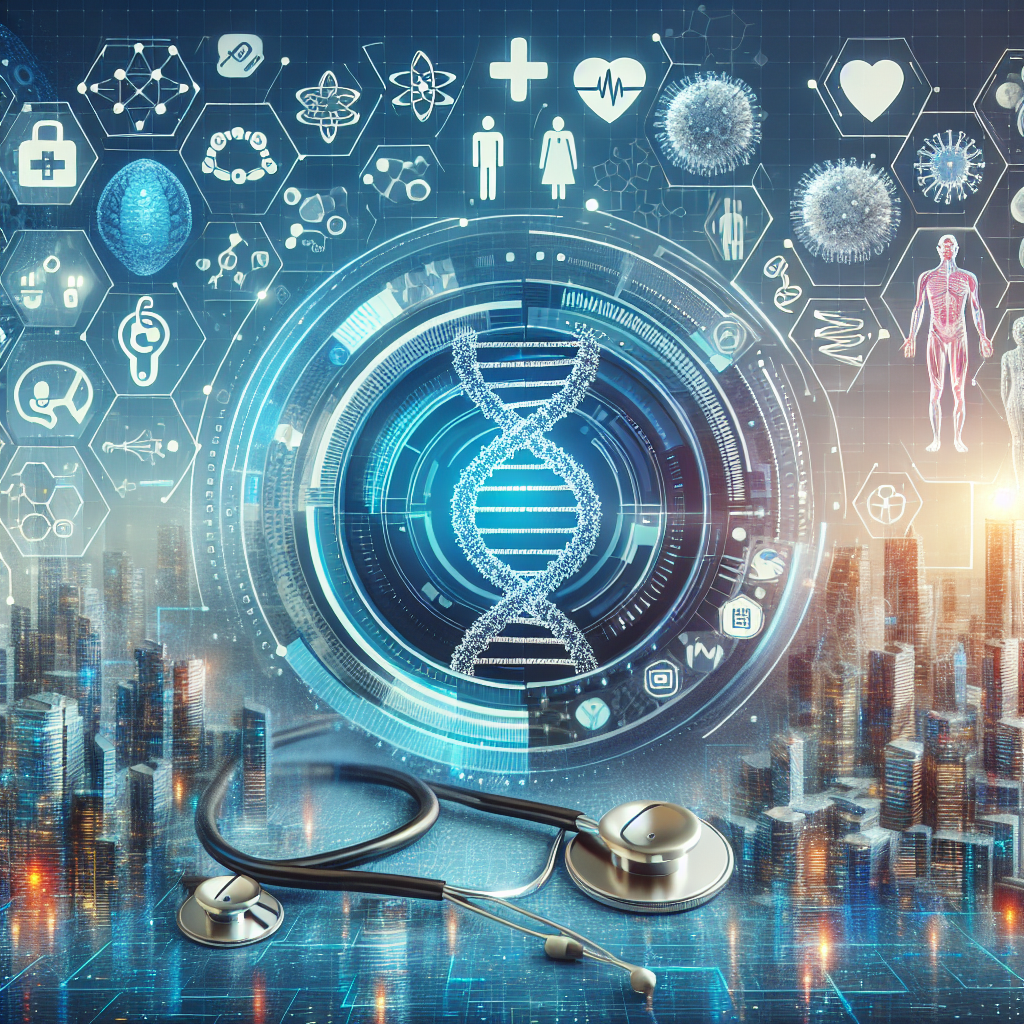In recent years, artificial intelligence (AI) has been revolutionizing the healthcare industry by providing personalized solutions for patients. AI-driven solutions are being used to create personalized treatment plans that take into account an individual’s unique genetic makeup, health history, lifestyle, and preferences. These personalized treatment plans are designed to improve patient outcomes, reduce healthcare costs, and enhance the overall quality of care.
One of the key benefits of AI-driven solutions for personalized healthcare is the ability to analyze vast amounts of data to identify patterns and trends that can be used to predict and prevent diseases. By utilizing machine learning algorithms, AI can analyze data from electronic health records, genetic testing, wearable devices, and other sources to identify risk factors and recommend personalized interventions.
For example, AI can be used to analyze a patient’s genetic data to identify genetic markers that may increase the risk of developing certain diseases. Based on this information, AI can recommend personalized screening and monitoring strategies to help prevent or detect these diseases at an early stage. AI can also analyze a patient’s electronic health records to identify patterns that may indicate the presence of a specific disease or condition, allowing healthcare providers to intervene early and provide personalized treatment plans.
AI-driven solutions can also be used to personalize treatment plans based on a patient’s lifestyle and preferences. For example, AI can analyze data from wearable devices to track a patient’s physical activity, sleep patterns, and diet, and provide personalized recommendations for improving health and wellness. AI can also analyze a patient’s treatment history and response to medications to identify the most effective treatment options for that individual.
In addition to personalized treatment plans, AI-driven solutions can also be used to improve patient engagement and adherence to treatment plans. By providing patients with personalized recommendations and reminders, AI can help patients stay on track with their treatment plans and make informed decisions about their health.
Overall, AI-driven solutions for personalized healthcare have the potential to transform the way healthcare is delivered by providing more effective, efficient, and personalized care to patients. By harnessing the power of AI, healthcare providers can deliver tailored treatment plans that address the unique needs of each individual, leading to better outcomes and improved quality of life.
FAQs:
Q: How does AI analyze data to create personalized treatment plans?
A: AI uses machine learning algorithms to analyze data from various sources, such as electronic health records, genetic testing, and wearable devices. By identifying patterns and trends in the data, AI can predict risk factors, recommend interventions, and personalize treatment plans for individual patients.
Q: Are AI-driven solutions for personalized healthcare secure and compliant with regulations?
A: Yes, AI-driven solutions for personalized healthcare adhere to strict security and privacy regulations to ensure that patient data is protected. Healthcare providers must comply with regulations such as HIPAA to safeguard patient information and ensure that AI-driven solutions are used responsibly.
Q: How can AI improve patient engagement and adherence to treatment plans?
A: AI can improve patient engagement by providing personalized recommendations and reminders to help patients stay on track with their treatment plans. By tailoring interventions to individual preferences and needs, AI can motivate patients to take an active role in managing their health.
Q: What are the potential challenges of implementing AI-driven solutions for personalized healthcare?
A: Some challenges of implementing AI-driven solutions for personalized healthcare include data privacy concerns, regulatory compliance, and the need for healthcare providers to adapt to new technologies. However, with proper safeguards and training, AI-driven solutions have the potential to transform the healthcare industry for the better.

